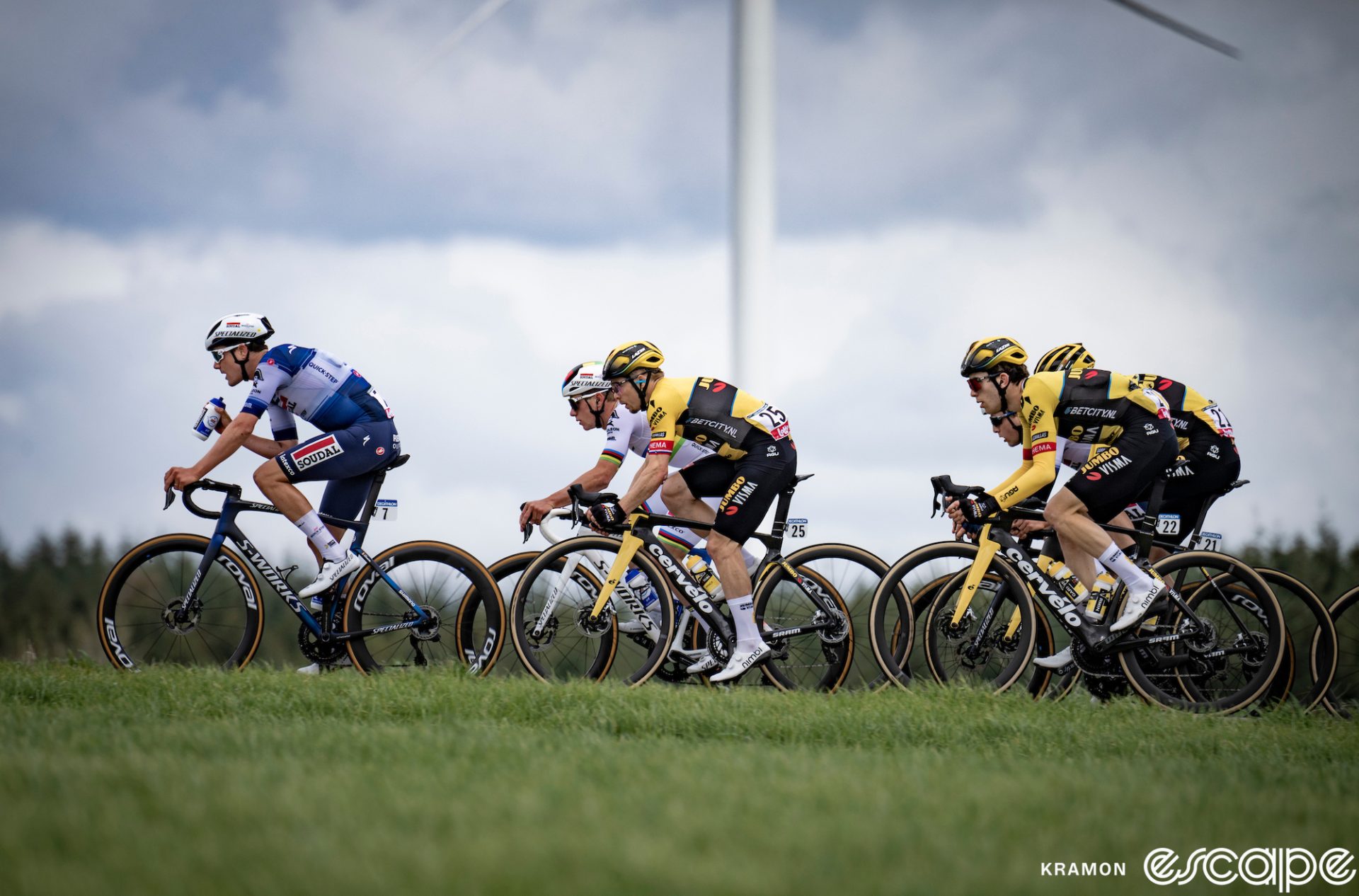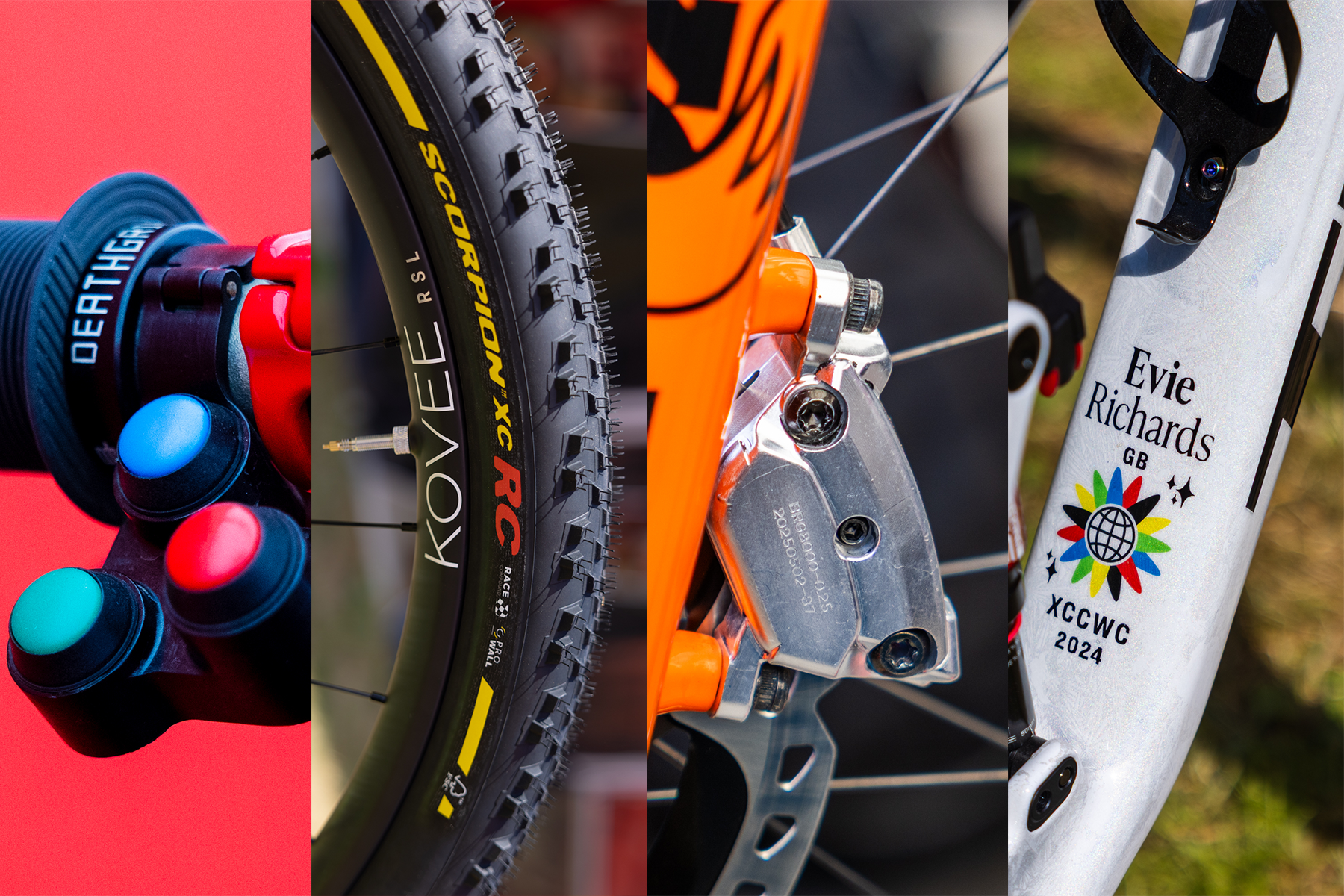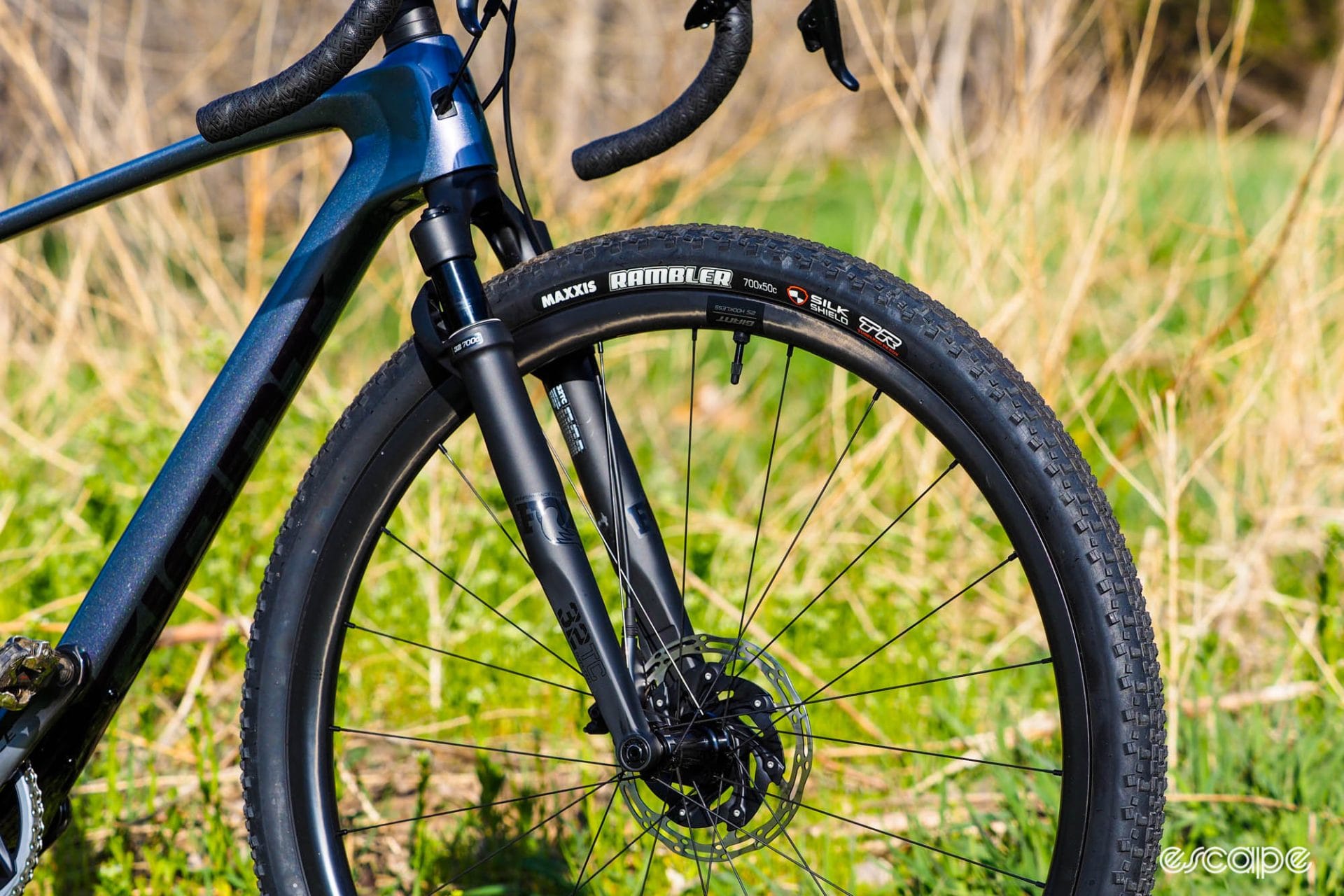After last Sunday’s European Continental Championship, I hope you’re getting used to the idea of Jumbo-Visma team sweeps. While "Europeans" is technically contested by national, not trade, teams, Jumbo’s riders went 1-2-3 in the men’s road race to add to their five stage wins and historic Vuelta a España overall sweep, plus five stages and the GC of the Tour of Britain. Busy September for the bees. And if the even bigger news from Sunday – that the team is in discussions with Soudal Quick-Step about a merger – ends up panning out, we could see even more dominance in the years ahead.
That’s a big if, and before we unpack the rumors, how likely they are, and what the short and long-effects of a Jumbo-Soudal tie-up might be, let’s pause to underscore how amazing it is that it’s even a topic of (apparently reasonable) speculation that Jonas Vingegaard, Remco Evenepoel, Wout van Aert and possibly Julian Alaphilippe could end up on the same roster as soon as next year.
This is, in a word, insane
Jumbo leads the WorldTour with 63 victories, including Christophe Laporte’s Euro road title. It won all three Grand Tours, plus four other WorldTour stage races and four WT cobble races. It targets every kind of race, with a deep Classics team and an unbeatable (almost literally) stage race roster.
For its part, Soudal is almost always at or near the top of the wins column and, despite a slow start this season, 2023 is no different. The team is second, with 53 victories. The quality is slightly lower than Jumbo, and QS missed out on a major cobbled Classic for the third year in the past four, but the team won stages at all three Grand Tours, plus Liège-Bastogne-Liège and Donostia San Sebastian. Traditionally a Classics-and-stages outfit, the emergence of Remco Evenepoel as a legit Grand Tour contender has shifted the team’s focus to include general classifications.
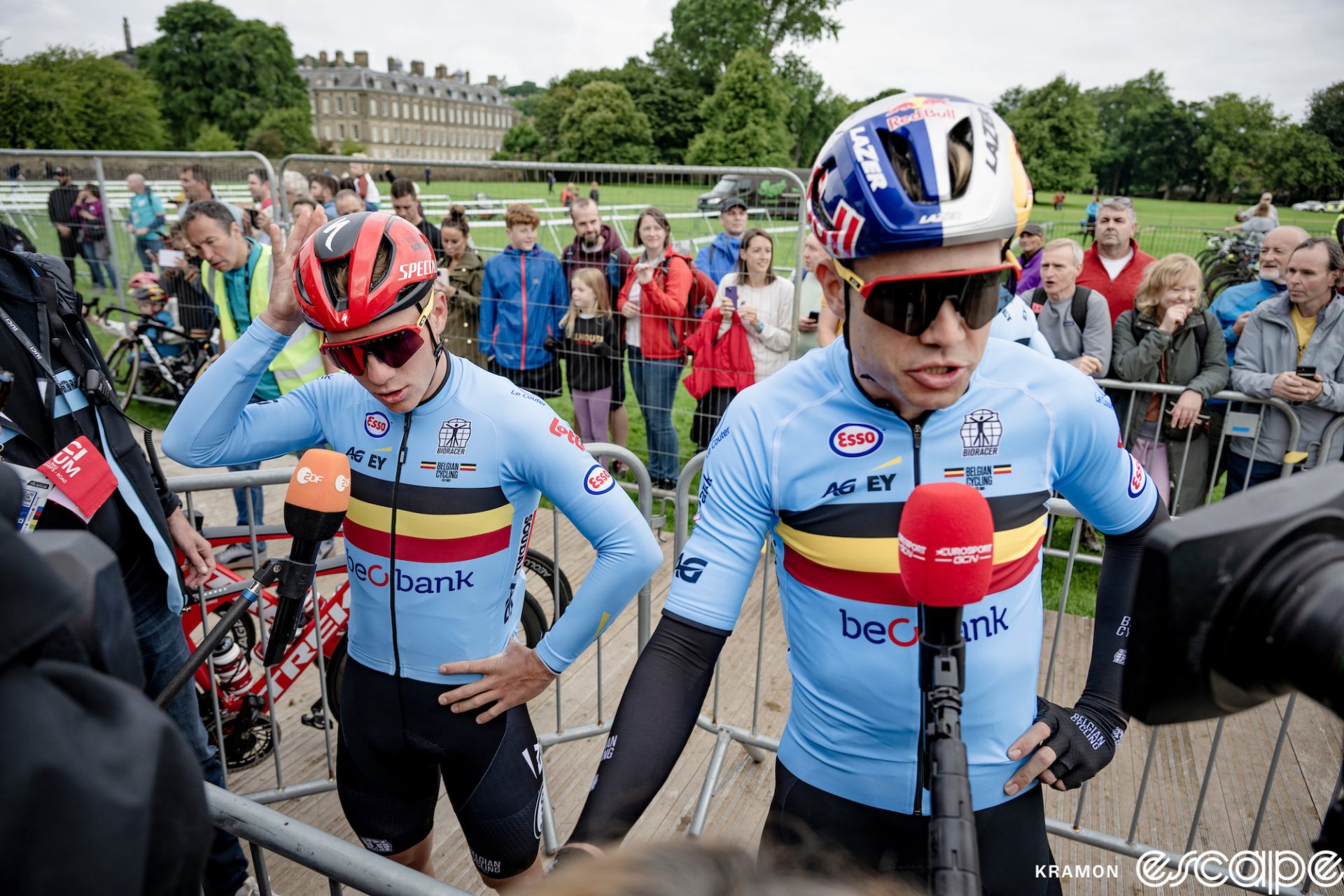
In other words, in pretty much any other sport on the planet, these two teams would be the fiercest of rivals. They wouldn’t meet for coffee, much less merge. A Jumbo-Soudal merger is like a marriage between Manchester United and Arsenal, Ferrari and Red Bull, the Boston Celtics and the Los Angeles Lakers.
I picked those examples because recently and historically they're some of the most successful organizations in their respective sports, but there’s another reason, which I’ll get to in a bit. For now, just sit with the analogy to understand how deeply absurd this possibility is.
The rumors and reaction
As you undoubtedly know, the possibility of a merger went public Sunday evening in Europe, when Raymond Kerckhoffs reported in Wielerflits that, according to several anonymous sources, the two teams had been in discussions since mid-July about a merger.
According to Wielerflits, Jumbo manager Richard Plugge would become CEO of the new organization, with lead director Marijn Zeeman becoming head coach. Soudal Quick-Step boss Patrick Lefevere would take a role on the combined team’s advisory board. No other roster or personnel moves were reported, nor was the role of the Soudal team’s majority owner, Zdenek Bakala, although he reportedly met with Jumbo officials in Geneva and is presumably on board with the idea.
Neither team commented on the Wielerflits story (which, to be fair, does not specify if comment was requested), but a Jumbo spokesperson later offered Global Cycling Network a kind of non-denial, saying that, “several options are open and time will tell.” Wielerflits did not specify the timeframe for the possible merger, but the report suggests it would be as soon as the 2024 season, ie. in just a few months.
Riders on both teams were apparently unaware of the discussions, with both Wielerflits and GCN reporting that they initially learned of it via the Wielerflits scoop and social media. GCN editor Dan Benson reported on a letter, purportedly from Lefevere to Soudal riders, apologizing (presumably for keeping them in the dark) and acknowledging “ongoing discussions with various parties in the last month.” But the letter reportedly also said, “Contrary to reports, however, there are no concrete projects and plans at this moment.”
Lefevere's letter to riders is the clearest confirmation we have, but even the careful-bordering-on-evasive phrasing from Jumbo suggests that, yes, there are discussions happening. A merger is more than a theoretical possibility, but it's certainly not assured, and a 2024 timeline faces several substantial obstacles. Foremost is that both teams have a large majority of their 2024 rosters already signed. Soudal has a reported 23 riders under contract, while Jumbo has 27.
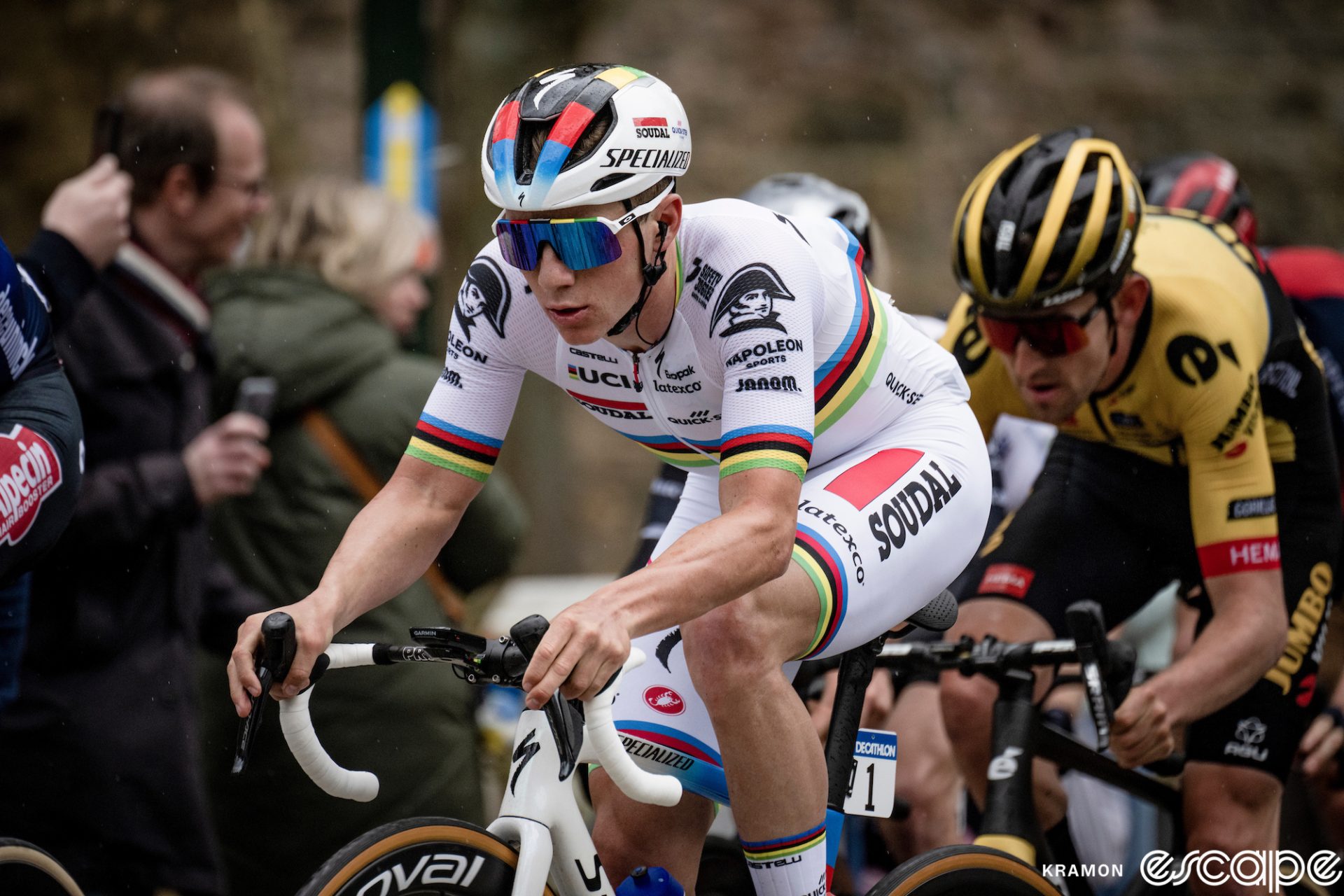
Additionally, both teams have a number of competing sponsor contracts still valid, ranging from four co-title sponsor deals that go through at least 2024, to Soudal’s longstanding relationship with equipment supplier Specialized vs. Jumbo's ties to Cervelo. A far more likely scenario is a deal from 2025 on, since Jumbo’s planned exit is after next season and a new co-title sponsor to pair with Visma has not yet materialized.
Ripple effect? More like a tsunami
The most immediate effect of a merger would be on riders and staff of the two organizations. Since the maximum WorldTour roster size is 30, a merger would force a combined team to shed as many as 20 riders with valid contracts through at least next season. It’s not clear how (or, legally, if) the two teams can do that, but it would cause silly-season chaos to lose the 30 potential roster spots of a WorldTour team at this late juncture in the season. Hence why 2025 is more likely.
If such a merger goes off this offseason, team officials will face some hard choices on roster makeup, the kind you wish you had to make in your fantasy team. Those lessen only somewhat in 2025. A combined Jumbo-Soudal in 2024 could have the winners of the last five Grand Tours: Evenepoel, Vingegaard, Primož Roglič, and Sepp Kuss. Other stage race talents/supporting riders would include Matteo Jorgenson, Steven Kruiswijk, Wilco Kelderman, and Attila Valter from Jumbo, plus Mikel Landa, Mauri Vansevenant, and Ilan Van Wilder from Soudal. Only Kuss is out of contract after next season.
The Classics lineup would be Evenepoel, Alaphilippe, Kasper Asgreen, Yves Lampaert, Tim Merlier (Soudal); and Tiesj Benoot, Jorgenson, Laporte, Dylan van Baarle, and Van Aert on the Jumbo side. Only Alaphilippe and Asgreen are out of contract after next season. Sprinters? Van Aert, Olav Kooijj, and Merlier. We haven’t even talked about young talents like Johannes Staune-Mittet and Luke Lamperti, both of whom will race their first WorldTour seasons next year.
That's 22 guys right there, absolute hitters all the way down and unlikely to happily co-exist. With just eight start spots per team per WorldTour race, there simply aren’t enough big, red-letter races for them to split between them. No chance all of them stay, but how do you decide who does? And who does the deciding?
This is, of course, to say nothing of the women's teams at both outfits. Will they combine too? If not, how do they continue otherwise – what happens with shared staff and sponsors? So far there's been almost no discussion of what happens on that side of the sport.
Another often-ignored impact of a merger is a massive shift in staff. Jumbo has some of pro cycling's best, most sophisticated sports science staff in particular, and both teams have enviable service courses and support networks for the cobbled Classics. But from soigneurs to sports science, a lot of good, professional staff will be looking for a job. Against that, the questions of what bike brand the team will go with feel almost quaint.
Culture shock, and opportunities
All those people – riders and staff – won’t simply disappear, however. They’ll spread out onto other teams, and the result will re-shape the sport. Roglič at Lidl-Trek? Or Ineos? Is Evenepoel finally headed for Ineos in a buyout that gives the new Soudal-Jumbo the cash to be able to offload contracted riders without their new teams paying their full contracts?
And for those that are left, they will have to fit their competitive goals into their new roles on the team. Perhaps the biggest challenge of any merger is how to build a culture that works, and for all their successes, Jumbo and Soudal are very different teams, managed in very different ways. At risk of caricature, Jumbo is cold and clinical, a calm and rational environment where scientific rigor and meritocracy reign. Soudal, meanwhile, is the freewheeling Wolf Pack, a piratical band of swashbucklers looking to create chaos in every race.
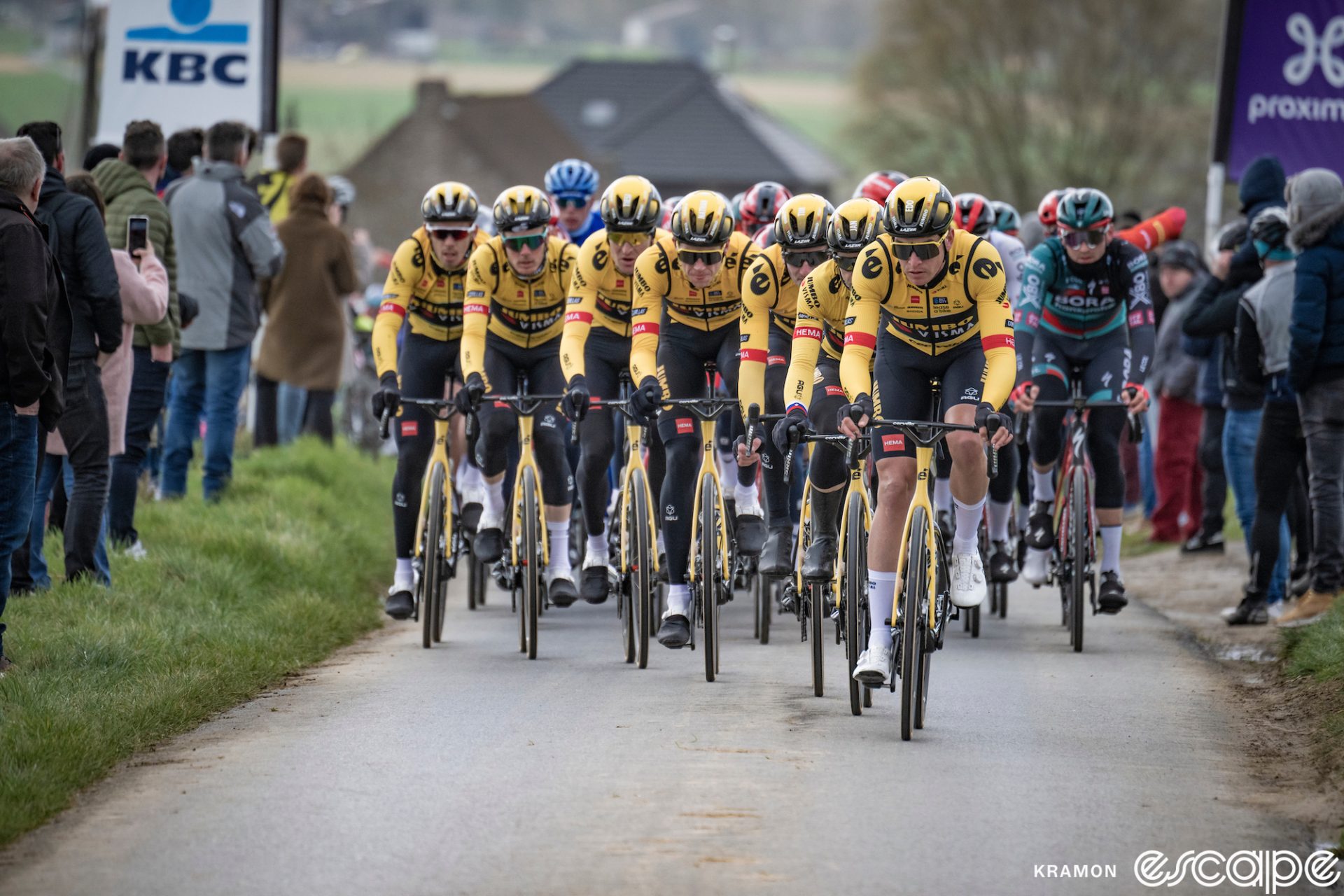
Culture starts from the top, and it’s honestly fun to try to imagine the ascetic Plugge joining bon vivant Lefevere for a Michelin-starred bacchanal as they discuss their plans. But when it comes to the actual blending of teams? I'll be very interested to see if Lefevere long-timers like Wilfried Peeters adopt the Jumbo way – if he's even given the chance.
If – and let’s be clear, this is still very much an if – this merger comes to pass, it’s going to create a series of golden opportunities. Can Lidl-Trek peel away Roglič for a last couple of Tour campaigns, thus giving us a three-way Roglič-Vingegaard-Pogačar Tour de France matchup of the ages, or even a quartet if Evenepoel and Ineos ever do more than flirt?
Conversely, a merger could also could create a Jumbo-Soudal that is, in the short term, almost unbeatable in most races, especially if the team manages to hold on to much of its top talent. I suspect one reason Plugge talks so glowingly of Roglič ("our king") despite the Slovenian's pretty obvious wish for more opportunities is that it's far preferable to manage Roglič inside Jumbo than as a threat on another team.
More long-term, a merger would mean there will be a WorldTour license up for grabs, and that provides an opportunity for someone – anyone, really. Maybe it’s the ticket back into the club for Sylvan Adams and Israel-Premier Tech, or Doug Ryder stages a triumphant return from the NextHash debacle with Ivan Glasenberg and Q36.5. Maybe it’s a chance for a slow-but-steady-growing Uno-X to make the jump. Maybe it’s someone entirely new like, well, the Saudis. If any entity has the cash to outbid others for instant entry to the WorldTour, it’s sovereign oil wealth, especially with rumors that Jumbo team management explored a possible Saudi sponsorship earlier this year only for it to go nowhere amid resistance from existing sponsors. The details of who grabs that ring – old faces or brand new ones – might reverberate through the sport in the coming years.
A troubling question at the core
The final point I’d make about the Jumbo-Soudal rumor is a disquieting one: it doesn’t speak well of the health of the sport. Lefevere’s reasons for seeking a merger are easily understandable. He’s 68, and purportedly looking for a golden parachute before his stake gets diluted to nothing. Bakala, his majority owner, hasn’t spoken publicly of his own intentions, but he may have tired of repeatedly putting money into the team in a debt-for-equity swap that has limited runway left (reportedly, he already owns 80% of the operation).
The question no one has answered (and which I honestly haven’t seen asked much, either) is why would Jumbo want this? The team already has the two best Grand Tour racers of the era, plus now a significant joker in Kuss. It had better results in the spring Classics than any teams bar Alpecin-Deceuninck and UAE Team Emirates. What motivation does the most powerful, successful team in the sport have in seeking to combine with another team that, while also highly successful, offers Jumbo almost nothing it doesn’t already possess?
The inescapable answer is a sponsor to replace the outgoing Jumbo. But this development – which would be essentially poaching an existing sponsor rather than bringing in a new one – isn’t exactly an encouraging sign for the sport.
Jumbo-the-team had the runway of a 20-month advance notice from Jumbo-the-sponsor that the supermarket chain would end its support. The team has another solid nine months to find a new backer in good time for 2025, so it's not quite time to panic. It’s been in active discussions with potential partners all year, its general manager is palling around with "lifelong cycling fan" Tim Cook (you know, the Apple guy), and is just off a season that is arguably the most successful of any outfit in the sport’s modern, trade-team era.
If, with all those considerable advantages, Plugge and his brain trust have decided that a messy merger is the best option it has, that’s troubling. To go back to my analogy, imagine what it would say about the financial health of the Premier League if Manchester United and Arsenal had to unite to survive? Imagine what it would mean for competitive parity and compelling storylines in Formula One if the two best teams in the sport combined forces? The impact on basketball culture of the Boston ... Lakers?
Make no mistake, a Jumbo-Soudal merger, as juicy an offseason topic as it is, is not a promising turn of events for men's pro road racing. That we’re talking about it as more than idle speculation should be seen as a warning.
Did we do a good job with this story?

